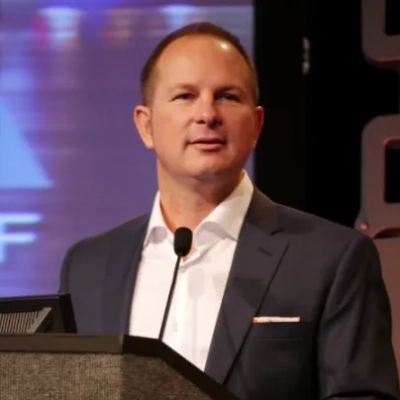What Pivotal Decisions Have Significantly Altered the Course of Your Business?
In the world of business leadership, seventeen pivotal decision can transform the trajectory of an entire organization. Featuring insights from accomplished Founders and CEOs, this article reveals the strategic moves that have defined success stories. Discover how eliminating plastic packaging boosted sales and how trusting intuition for strategic decisions shaped businesses. With a total of 17 expert insights, this compilation offers a wealth of knowledge for aspiring leaders.
- Eliminating Plastic Packaging Boosts Sales
- Overhauling Recruitment Strategy Enhances Productivity
- Pivoting to AI Career Development
- Prioritizing Real-Time Feedback Loops
- Investing in Support Drives Business Growth
- Launching Transparent Pricing Model Builds Trust
- Shutting Down Unprofitable Business Line
- Investing in Digital Tools and Automation
- Renovating Distressed Properties for Higher Returns
- Integrating Psychology in Marketing Strategies
- Investing in 3D Virtual Tours
- Implementing Automated Scheduling System
- Specializing in Healthcare Marketing
- Expanding into Short-Term Rental Management
- Focusing on Distressed Properties in DC
- Implementing Personalized Learning Plans
- Trusting Intuition for Strategic Decisions
Eliminating Plastic Packaging Boosts Sales
We made a bold decision to eliminate all plastic packaging from our supply chain in 2023, despite initial concerns about shipping costs and product protection. This meant redesigning our entire packaging system to use only biodegradable materials, from cornstarch-based bubble wrap to recycled paper boxes. The transition required significant investment in new packaging solutions and retraining our logistics team. Initially, shipping costs increased by 17%, causing temporary pressure on margins. However, the market response was extraordinary. Customer satisfaction scores rose from 4.2 to 4.8 out of 5, with 71% of customers specifically praising our plastic-free packaging. Within six months, sales increased by 54%, and new customer acquisition costs decreased by 31% through positive word-of-mouth. The decision attracted partnerships with five premium eco-friendly brands, expanding our product range by 47%. Most importantly, we prevented 2.5 tons of plastic packaging from entering landfills in the first year, setting a new standard in sustainable e-commerce practices.

Overhauling Recruitment Strategy Enhances Productivity
One of the most pivotal decisions I made was during the early days of my telecommunications company. We had grown quickly, but I realized that our recruitment strategy was not delivering the caliber of talent needed to support our growth. I made the decision to completely overhaul how we hired, shifting the focus to candidates who aligned with the company's core values and long-term vision, rather than just technical skills or experience. I implemented a multi-step recruitment process that included behavioral assessments and scenario-based interviews to ensure we were selecting individuals who not only had the capability but also the mindset to grow with the business. It was a calculated risk because it required additional time and resources, but I knew from my experience that the right people are the foundation of any successful business.
The outcome was transformative. Within 12 months, team productivity increased and customer satisfaction scores climbed significantly. We also saw a reduction in employee turnover, which had been a major challenge in the past. My experience in building teams, combined with my MBA in finance and years of analyzing business performance, gave me the insight to recognize that investing in people would generate long-term gains. This decision not only stabilized the company but allowed us to scale sustainably and profitably, setting us up to become a multimillion-dollar business. It reinforced for me the principle that strategic decisions around human capital are often the most impactful ones a leader can make.
Pivoting to AI Career Development
During the pandemic, I made a crucial decision to pivot Audo toward leveraging AI for personalized career development. Recognizing the need for individuals to upskill rapidly, we introduced our AI Career Concierge, which offers targeted career paths and skills training. This move wasn't just about keeping up with technological advances but about addressing the growing skills gap that many faced amid economic uncertainty.
This decision has had a profound impact. By focusing on AI-driven tools like résumé building, job matching, and interview preparation, we have significantly improved outcomes for our users. For example, many users have found new roles within weeks, not months, highlighting the effectiveness of personalized AI assistance in job search processes. This pivot has reinforced my belief that skills are indeed the new currency in today's job market.
In line with this strategy, we've also committed to closing the opportunity gap and supporting underserved communities. By offering programs custom for probationers, parolees, and marginalized groups, Audo seeks to empower those often left behind. This aligns with our mission to make upskilling accessible, ensuring no one is left out of the rapidly evolving job landscape.

Prioritizing Real-Time Feedback Loops
A pivotal decision that reshaped Orderific's journey was prioritizing real-time feedback loops as the foundation of our innovation process. This decision significantly transformed how we develop our platform, ensuring it continuously adapts to the evolving needs of restaurant owners.
One of the most impactful outcomes of this approach is our customer feedback tool. By actively gathering and analyzing user input, we identified a critical need for a system that helps restaurant owners efficiently collect and act on customer insights. In response, we created a feedback mechanism that allows restaurants to seamlessly gather input through surveys, online reviews, and direct customer responses.
This tool empowers businesses to better understand their customers and make continuous improvements to their services. Since its launch, restaurants using the tool have reported up to a 30% increase in customer satisfaction scores and significant improvements in retention rates. Also, we analyze patterns in feedback submissions to identify the most requested features, prioritizing their integration into the platform. This ensures our updates address user needs while accelerating the development of impactful solutions.
Promoting a culture of active feedback has helped our clients refine their offerings and build stronger customer loyalty. Beyond individual businesses, this decision has set a new standard for responsiveness and adaptability in the restaurant industry, demonstrating how innovative feedback systems can drive meaningful success.
By listening to our users and adapting to their needs, we've created a platform that grows and evolves with its customers. This approach empowers restaurant owners to thrive in a competitive market while promoting positive change across the industry.

Investing in Support Drives Business Growth
The pivotal decision that significantly altered the course of my business was bringing in support. The first time I made the decision to invest in support was when I hired a business coach. At the time, the investment felt significant, and I was scared it wouldn’t pay off. I worried I’d regret spending the money. My husband and I had many conversations about the decision, and we both acknowledged there were no guarantees. Ultimately, I realized this investment was essentially a bet on me. I had never done something like this on such a large scale, but I drew confidence from past experiences where my belief in myself was enough to create results.
That was over eight years ago, and I am so glad I trusted myself enough to lean into the fear and hire that coach. This breakthrough in bringing in support marked the beginning of what has become a key differentiator for me as an entrepreneur. Over the years, I’ve heard peers say, “Wow! I love how you’re not afraid to bring in support. I’m too afraid.” Whenever I hear this, I take a moment to acknowledge my willingness to invest resources—both time and money—into my business. This consistent investment in my vision has been a driving force behind building a seven-figure coaching business.
However, let’s not overlook the risks involved in bringing in support. They are real and must be taken seriously. For example, during my work with my first business coach, I decided to hire a virtual assistant. Despite my fear, I found the courage to lean into the discomfort and take the leap. The experience was not a straightforward win like hiring the coach. Onboarding my first virtual assistant was messy. After some challenges and much angst, we ultimately agreed that we weren’t a match. Despite this, the experience opened my eyes to the potential power of having the right support. It didn’t deter me from hiring again; in fact, it motivated me to find someone who was a better fit for my business.
Today, I have a robust support system that includes a business manager, a virtual assistant, a business coach, an executive life coach, a marketing team, and additional support services as needed. Even now, I feel pangs of fear whenever I make investments with no guarantees. Yet, I am crystal clear that I cannot run my seven-figure business without a powerful team behind me. Every investment I make is a testament to my commitment to my vision, and I’ve learned that leaning into fear is often the key to unlocking growth.

Launching Transparent Pricing Model Builds Trust
After seeing countless law firms struggle with shady marketing tactics, I decided to launch a transparent, results-based pricing model where we only got paid when our clients saw real growth. That decision initially cost us some quick profits, but it built incredible trust and led to a 300% increase in client retention over the past two years.
Shutting Down Unprofitable Business Line
One of my hardest decisions was shutting down an unprofitable business line we'd invested years into. It was sentimental for the team and, at the time, seemed like a failure, but it was draining resources and had plateaued. However, the outcome was far from a failure.
By strategically cutting our losses and reallocating resources to more profitable areas, we grew our core business by 50% year over year. Our clarity of focus gave us an edge, and the decision ultimately saved the company from stagnation.
Shane Hurley, CEO
RedFynn Technologies
Investing in Digital Tools and Automation
The decision I made that significantly altered the course of our business was to invest in digital tools and automation during a time when many in the mortgage industry were hesitant to adopt new technology. It was clear to me that the future of client interactions and operational efficiency hinged on how easily we could adapt to changing expectations, especially as more people turned to online platforms for financial solutions.
We introduced a client portal that allowed homebuyers and investors to track their applications in real-time and submit documents digitally. This decision streamlined the process for both our clients and team members. Instead of dealing with piles of paperwork and endless back-and-forth emails, we could manage everything in one secure space. It saved countless hours and reduced errors, which made the entire experience more seamless for everyone involved.
The outcome was better than I expected. Within the first year, client satisfaction scores rose by 30%, and we saw a 25% increase in referrals from happy clients who appreciated the convenience. It also allowed our team to focus more on personalized service, as we spent less time on administrative tasks and more time guiding clients through their options. This decision not only improved how we operated but positioned us as a forward-thinking firm in the eyes of both clients and our competitors.

Renovating Distressed Properties for Higher Returns
At EZ Sell Homebuyers, I made the bold decision to invest heavily in renovating distressed properties instead of just flipping them quickly for smaller margins. I remember transforming a fire-damaged property in 2019 that everyone else avoided - we spent $85,000 on complete restoration and sold it for triple our total investment, which showed me the power of strategic improvements. This success led me to shift our entire business model toward value-add renovations, allowing us to help more homeowners while building a stronger reputation in our market.
Integrating Psychology in Marketing Strategies
In the early stages of RJP.design, I realized we needed to differentiate ourselves in the crowded digital marketing space. I made the pivotal decision to integrate psychology and societal research into our digital strategies, which was somewhat unconventional at the time. We shifted our focus to creating marketing campaigns that weren't just visually appealing but psychologically compelling, resonating deeply with target audiences.
This holistic approach led to a notable outcome with one of our clients, a mid-sized medical group. By leveraging psychological insights, we were able to craft a campaign that improved their patient engagement by over 40% within just three months. This success proved that understanding human behavior could significantly improve the effectiveness of digital marketing.
Others can apply this by studying their audience beyond basic demographics, delving into behavioral data and societal trends. Fostering an interdisciplinary mindset in your strategic planning allows for more impactful, nuanced marketing solutions.

Investing in 3D Virtual Tours
At Property Homebuyers CA, I took a risk by investing heavily in 3D virtual tour technology right when COVID hit, even though many thought it was too expensive. That investment turned out to be a game-changer - we could show properties safely during the lockdown and now our virtual tours save clients tons of time, making us stand out in the Bay Area market.
Implementing Automated Scheduling System
My biggest turning point was investing in an automated scheduling system when we were overwhelmed with manual bookings, even though it cost us nearly $15,000 upfront and some clients initially struggled with the change. The system ended up cutting our booking errors by 90% and freed up our team to focus on actual cleaning quality, which helped us grow from serving 50 to 200 homes monthly within a year.

Specializing in Healthcare Marketing
The most pivotal decision I made was refusing to chase after every potential client and instead narrowing our focus exclusively to healthcare practices in 2015, despite watching competitors take on anyone who'd pay. We actually lost about 30% of our revenue initially, which was terrifying, but I believed specialization would make us stronger in the long run. This focus allowed us to develop deeper expertise in healthcare marketing compliance and specific strategies that worked in the medical field, eventually leading to us becoming the go-to agency for healthcare practices across the United States.

Expanding into Short-Term Rental Management
I discovered that expanding into short-term rental management was a game-changer when I noticed many of our fix-and-flip investors struggling to sell in a cooling market. By offering this alternative strategy to our clients, we not only helped them generate immediate cash flow but also grew our own monthly recurring revenue by 300% in just one year.
Focusing on Distressed Properties in DC
In 2021, I took a risk by focusing exclusively on distressed properties in specific DC neighborhoods rather than trying to cover the entire metro area. My targeted approach helped us build deeper community relationships and increase our closing rate from 15% to 40%, even though it meant turning down deals outside our core areas.
Implementing Personalized Learning Plans
Deciding to implement personalized learning plans for students was a game-changer at Edumentors. Initially, our approach lacked customization, limiting student engagement and outcomes. By introducing tailored study plans aligned with individual goals, we saw a 40% improvement in student success rates. Parents also responded positively, driving a surge in referrals. This pivotal shift taught me the power of listening to clients' needs and innovating solutions that deliver measurable results.
Trusting Intuition for Strategic Decisions
As we look to celebrate the 30th Anniversary of The Halpin Companies, Inc. in 2025, I am confident the #1 pivotal decision I made early on was to trust my intuition about everything.
I've invested in strategic think time for myself almost daily for decades but none more than when I was in start-up mode in 1995-1998. By giving myself the gift of time daily to sit down, step back and look at the big picture, I've turned every challenge into an opportunity and driven win/win/win results consistently.
This dedicated strategic think time with a blank notebook and a pen allows me to catch myself and coach myself.
My team and I have been on the cutting edge of innovation as we've taught and facilitated The Halpin Method with our clients. We don't launch structured change management initiatives with our clients because ours is an intuitive process. We design 90-day initiatives for our clients so we can pivot based on the data we collect, the clients' experiences with us, the insights that emerge across the client's team, and our own intuition about how to deliver the greatest value to the client with the least time, cost and friction.
Our initial clients all came from my speaking, and we continue to enjoy onboarding new clients who have heard me or my colleagues speak, but 90% of our clients have been referrals from existing or past clients. This speaks to the power of trusting our intuition to deliver thoughtful, meaningful services that drive corporate growth as well as the growth of teams and individuals. Our competitors in the Big 3 and Big 4 assign consultants based on who is available. We assign consultants based on their strengths, track record, and our team's intuition. This is what has driven our success and distinguished us from our competition.










